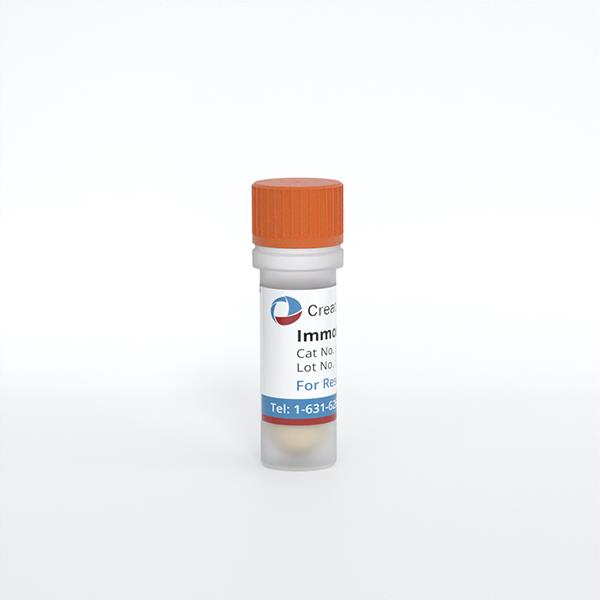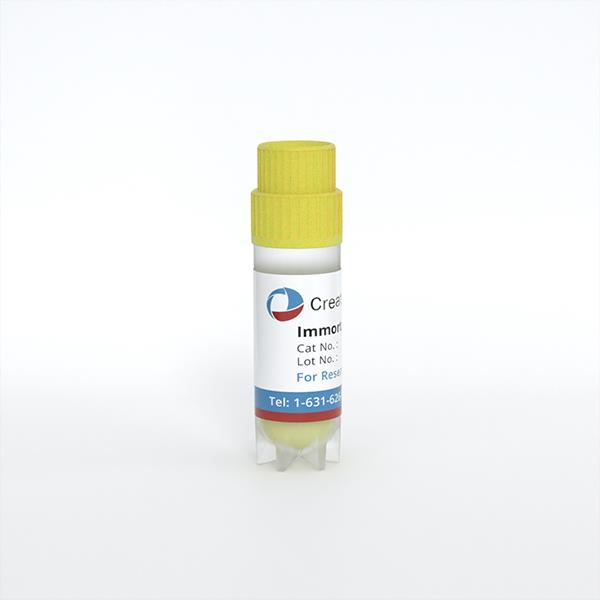
Immortalized Mouse Dental Apical Papilla Progenitor Cells (iSCAP)
Cat.No.: CSC-I9227L
Species: Mus musculus
Source: Lower Incisor Teeth
Morphology: Polygonal
Culture Properties: Adherent
- Specification
- Q & A
- Customer Review
Cat.No.
CSC-I9227L
Description
Immortalized Mouse Dental Apical Papilla Progenitor Cells are hygromycin-resistant, non-tumorigenic reversibly immortalized cells that have retained mesenchymal progenitor markers. The cells are unique, as the immortalization process may be reversed by infection with Cre-recombinase expressing adenoviruses, thus reverting immortal cells back into primary cells. When transduced with adenovirus expressing BMP9, these cells are able to differentiate into osteogenic, chondrogenic, and adipogenic lineages. Besides expressing osteoblastic/odontoblastic markers such as OPN, OCN, BSP, MEPE, DMP1, DSPP, and ALP, these cells are also able to form mature and mineralized osteoid matrix upon BMP9-transductionThese cells are recommended for use in studies involving apical papilla stem cell biology, and ondontogenic tissue engineering.
Species
Mus musculus
Source
Lower Incisor Teeth
Culture Properties
Adherent
Morphology
Polygonal
Immortalization Method
Serial passaging and transduction with retrovirus SSR#69 expressing SV40 large T antigen flanked with Cre/loxP sites
Markers
CD73, CD44, CD90/Thy-1, CD105/Endoglin, CD166/ALCAM, CD133/Prom1, BMPRII, CD117/c-kit, and CD29/integrin β1
Application
For Research Use Only
Storage
Directly and immediately transfer cells from dry ice to liquid nitrogen upon receiving and keep the cells in liquid nitrogen until cell culture needed for experiments.
Note: Never can cells be kept at -20 °C.
Note: Never can cells be kept at -20 °C.
Shipping
Dry Ice.
Recommended Products
CIK-HT003 HT® Lenti-SV40T Immortalization Kit
Quality Control
1) Immunofluorescence staining performed to examine mesenchymal stem cell markers;
2) sqPCR analysis for BMP9-induced late osteo/odontoblast, and ondotoblast markers.
2) sqPCR analysis for BMP9-induced late osteo/odontoblast, and ondotoblast markers.
BioSafety Level
II
Citation Guidance
If you use this products in your scientific publication, it should be cited in the publication as: Creative Bioarray cat no.
If your paper has been published, please click here
to submit the PubMed ID of your paper to get a coupon.
Ask a Question
Write your own review
Related Products
Featured Products
- Adipose Tissue-Derived Stem Cells
- Human Neurons
- Mouse Probe
- Whole Chromosome Painting Probes
- Hepatic Cells
- Renal Cells
- In Vitro ADME Kits
- Tissue Microarray
- Tissue Blocks
- Tissue Sections
- FFPE Cell Pellet
- Probe
- Centromere Probes
- Telomere Probes
- Satellite Enumeration Probes
- Subtelomere Specific Probes
- Bacterial Probes
- ISH/FISH Probes
- Exosome Isolation Kit
- Human Adult Stem Cells
- Mouse Stem Cells
- iPSCs
- Mouse Embryonic Stem Cells
- iPSC Differentiation Kits
- Mesenchymal Stem Cells
- Immortalized Human Cells
- Immortalized Murine Cells
- Cell Immortalization Kit
- Adipose Cells
- Cardiac Cells
- Dermal Cells
- Epidermal Cells
- Peripheral Blood Mononuclear Cells
- Umbilical Cord Cells
- Monkey Primary Cells
- Mouse Primary Cells
- Breast Tumor Cells
- Colorectal Tumor Cells
- Esophageal Tumor Cells
- Lung Tumor Cells
- Leukemia/Lymphoma/Myeloma Cells
- Ovarian Tumor Cells
- Pancreatic Tumor Cells
- Mouse Tumor Cells
Hot Products
